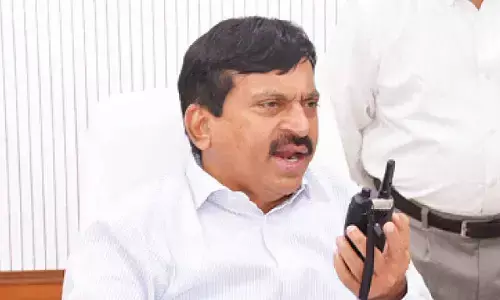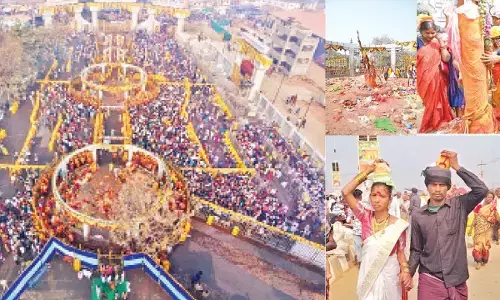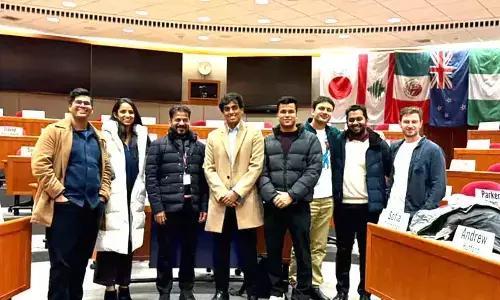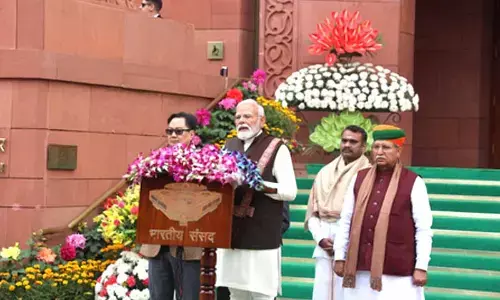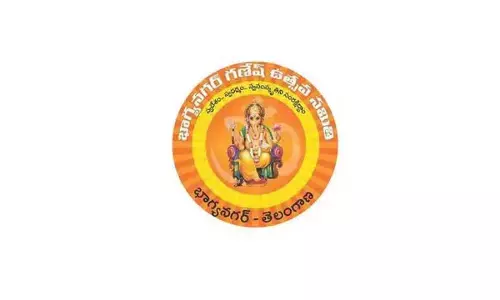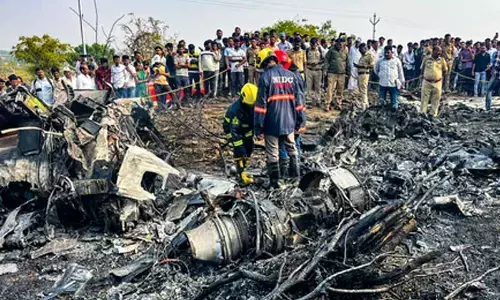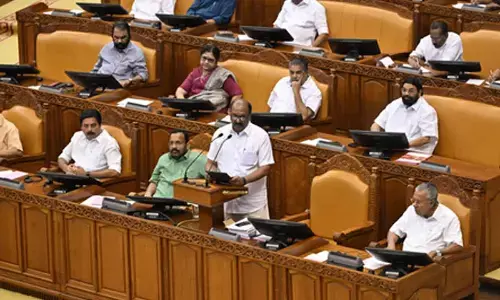A beacon of hope for the oppressed
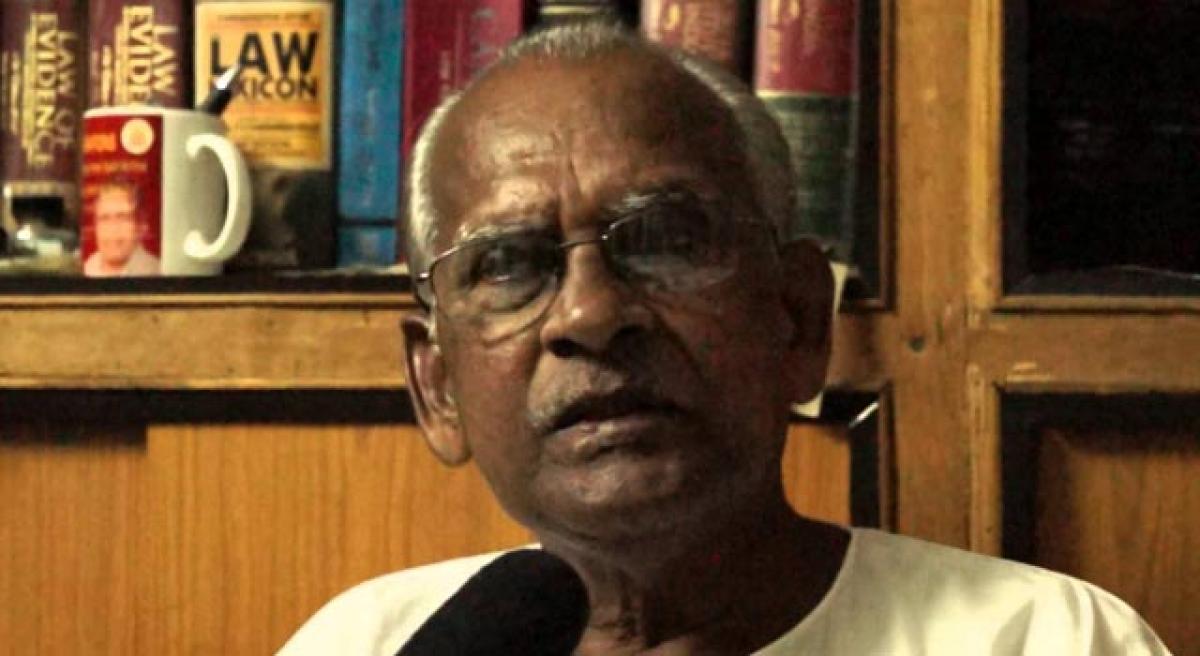
The legendary advocate, who actively argued in several cases of atrocities against Dalits including the brutal Tsundur massacre, Bojja Tarakam breathed his last on Friday at the age of 77, leaving behind a rich legacy of a lifelong struggle for social revolution.
The man, who sought and fought for justice to the Dalits and marginalised communities in the united Andhra Pradesh before the court of law and at the same time asked the oppressed communities to retaliate the atrocities of the mighty and the mindless, has walked his way into history.
The legendary advocate, who actively argued in several cases of atrocities against Dalits including the brutal Tsundur massacre, Bojja Tarakam breathed his last on Friday at the age of 77, leaving behind a rich legacy of a lifelong struggle for social revolution.
Active even during the fag-end of his life, Tarakam argued the case that involved the research scholar of University of Hyderabad, Rohith Vemula, whose suicide in the hostel room of University of Hyderabad sparked a huge outcry against cast discrimination across the country.
Adamant for impartiality to the oppressed, Tarakam continued his relentless fight for justice to the victims and for severe action against the officers involved in several fake encounters across the State. The mighty messiah of the marginalised had the audacity to call it quits his post as special prosecutor in the AP High Court to register his gripe against the infamous Karamchedu violence in Guntur district way back in 1984.
Recalling the yeoman services rendered by Tarakam to the cause of the oppressed, retired High Court Judge and social activist Justice Chandra Kumar says, “He fought for the rights of the oppressed, particularly the Dalits.
At the initial stage, in Nizamabad when there were atrocities against the downtrodden and no one was there to take up their cause, it was Bojja Tarakam who assembled 60 to 70 people and stood for the rights of the exploited.
He was the one who fought for justice even in the Supreme Court when Dalits were massacred. He not only fought a legal battle for the browbeaten lot, but also conducted several programmes to create awareness about their rights.”
A noted author, poet and an ardent rights activist and Tarakam’s long-time associate and great admirer, senior journalist and well-known author N Venugopal says, “I first met him some 40 years ago. Though I can’t claim to have met him so frequently, yet whenever we met, we got closer.
The great poem he wrote during Emergency – “Neeto Cheppane Ledu” – and published post Emergency is my all-time favourite. He was a great man who considered the Dalit movement and the revolutionary movement as equally important and respected and supported both of them. His loss will ever remain a vacuum.
A native of the backward village of Kandikuppa in East Godavari district of Andhra Pradesh, Tarakam’s journey was eventful. Son of Bojja Appalaswamy, a teacher and a political figure, he grew up witnessing the suffering of fishermen community. After finishing his primary education in the school set up by his father, Tarakam went on to join the Pithapuram Raja’s School in Kakinada.
In 1958, when he began college studies, he got an admission in Kakinada Engineering College, but was not allowed to join since he was under-age. During his college days at PR Government College, he became a student activist of the SC Student Federation. He was greatly attracted to Dr Ambedkar’s ideologies.
Though he wanted to do an MA in Maths and Statistics, he realised that Osmania University did not allow Andhra region students to get a Masters in Maths. However, he stayed back in Hyderabad, where he took part in many cultural activities. He later opted for Law and enrolled in an evening college.
In the late 60s, Tarakam moved to Nizamabad and started his career as a lawyer. It was then he realised how legal assistance was inaccessible to Dalits to fight atrocities. He got introduced to Battula Punnaiah, a college lecturer, who was spreading Dr Ambedkar’s ideals among the youth.
And both organised Ambedkar Yuvajana Sangham. Later, Tarakam founded the AP Dalita Maha Sabha and was a leading figure in the Tsundur Struggle Committee. And for those who are in the know, the rest is history.
A poet, writer, translator and political commentator, his famous works include ‘Nadiputtina Gontuka,’ ‘Naalaage Godavari Poleesulu Arrestu Cheste,’ ‘Kulam–Vargam,’ ‘Brazil Prajala Bhooporatam,’ ‘Nela, Nagali, Moodeddulu’ and ‘Dalitulu–Rajyam. Hyderabad District Collector Rahul Bojja is his son. An activist and a philanthropist to the core, Tarakarm was, in his own words, both an Ambedkarite and a Marxist.
By:Payam Sudhakaran








